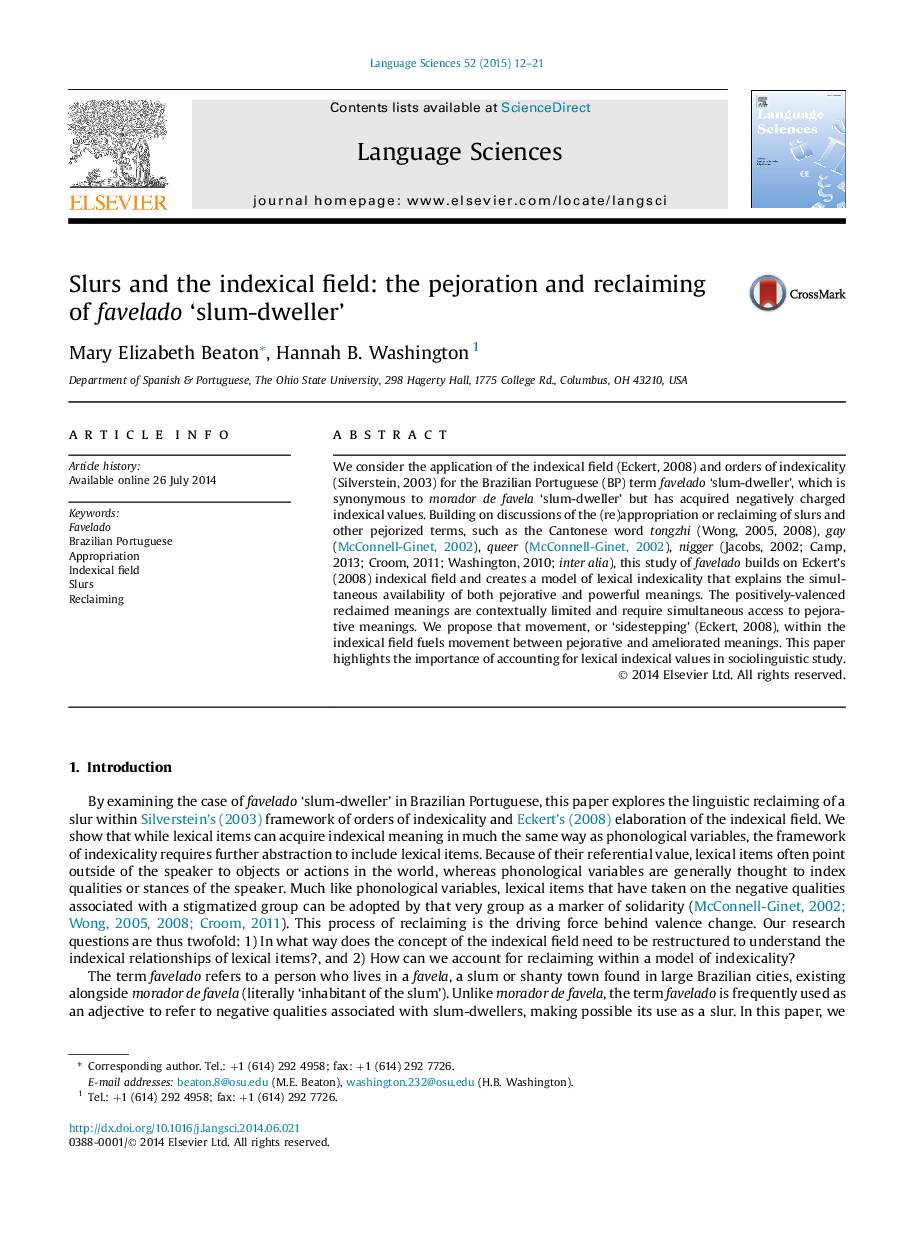| Article ID | Journal | Published Year | Pages | File Type |
|---|---|---|---|---|
| 1103010 | Language Sciences | 2015 | 10 Pages |
•We discuss terminologies used for and trajectories of linguistic (re)taking.•We adapt Eckert's (2008) indexical field model for socially-charged lexical items.•We explain the differences between two place-based synonyms as indexical.•Patterns exist in online negotiations of meaning of socially-charged words.•The ameliorated usage of favelado is different from that of other slurs.
We consider the application of the indexical field (Eckert, 2008) and orders of indexicality (Silverstein, 2003) for the Brazilian Portuguese (BP) term favelado ‘slum-dweller’, which is synonymous to morador de favela ‘slum-dweller’ but has acquired negatively charged indexical values. Building on discussions of the (re)appropriation or reclaiming of slurs and other pejorized terms, such as the Cantonese word tongzhi (Wong, 2005, 2008), gay ( McConnell-Ginet, 2002), queer ( McConnell-Ginet, 2002), nigger (Jacobs, 2002; Camp, 2013; Croom, 2011; Washington, 2010; inter alia), this study of favelado builds on Eckert's (2008) indexical field and creates a model of lexical indexicality that explains the simultaneous availability of both pejorative and powerful meanings. The positively-valenced reclaimed meanings are contextually limited and require simultaneous access to pejorative meanings. We propose that movement, or ‘sidestepping’ (Eckert, 2008), within the indexical field fuels movement between pejorative and ameliorated meanings. This paper highlights the importance of accounting for lexical indexical values in sociolinguistic study.
